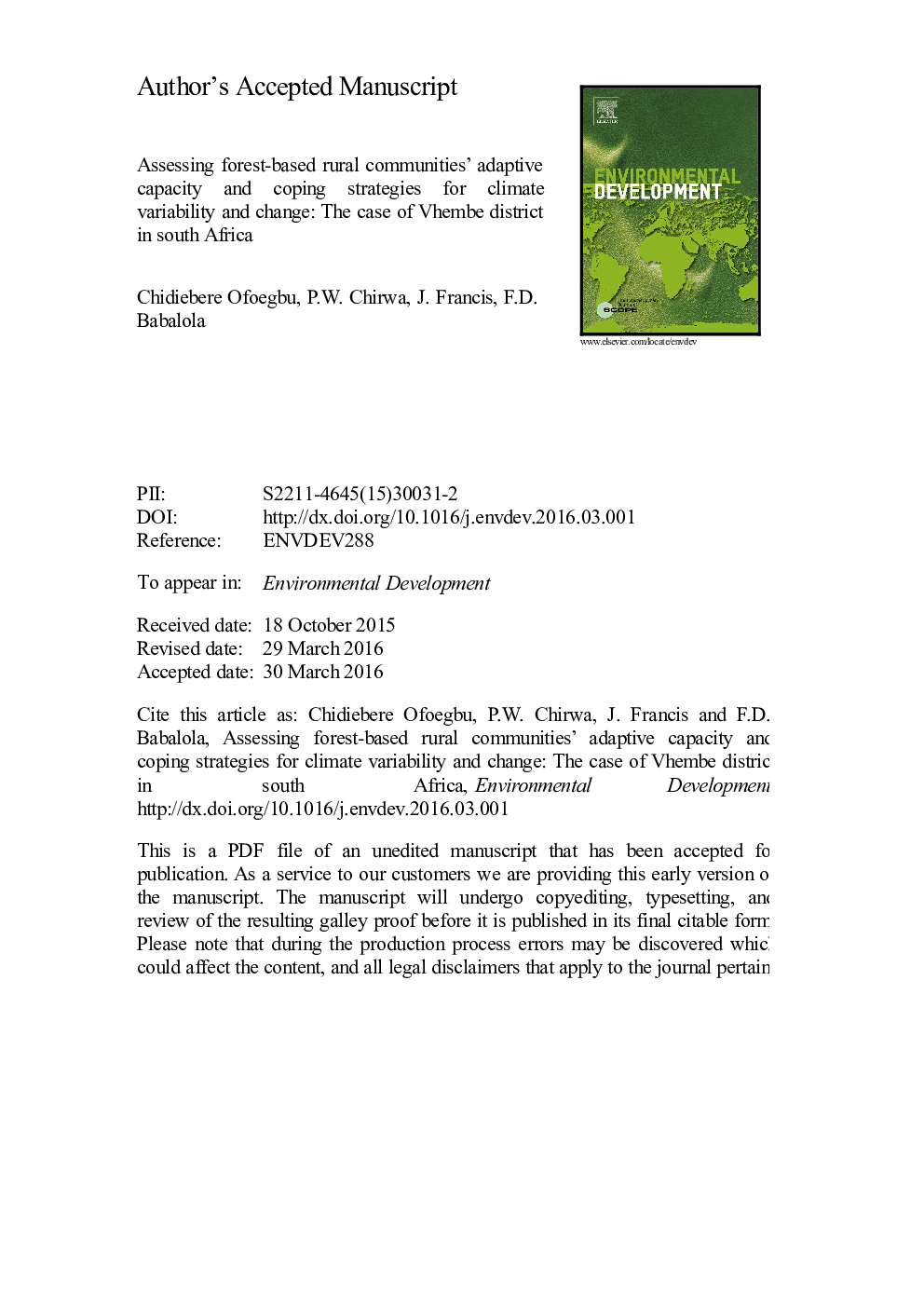| کد مقاله | کد نشریه | سال انتشار | مقاله انگلیسی | نسخه تمام متن |
|---|---|---|---|---|
| 6302907 | 1618083 | 2016 | 25 صفحه PDF | دانلود رایگان |
عنوان انگلیسی مقاله ISI
Assessing forest-based rural communities' adaptive capacity and coping strategies for climate variability and change: The case of Vhembe district in south Africa
ترجمه فارسی عنوان
ارزیابی ظرفیت انطباق جوامع روستایی مبتنی بر جنگل و راهبردهای مقابله با تغییرات و تغییرات آب و هوایی: مورد منطقه ومبه در جنوب آفریقا
دانلود مقاله + سفارش ترجمه
دانلود مقاله ISI انگلیسی
رایگان برای ایرانیان
کلمات کلیدی
تنوع و تغییرات اقلیمی، انعطاف پذیری جامعه، استراتژی مقابله، معیشت، انطباق، ظرفیت سازگاری،
موضوعات مرتبط
علوم زیستی و بیوفناوری
علوم محیط زیست
بوم شناسی
چکیده انگلیسی
In this study, various coping strategies used by forest-based rural communities in Vhembe District of South Africa in response to climate variability and change challenges were investigated. The effect of community socio-demographic characteristics on the adaptive capacity and choice/effectiveness of coping strategies was examined. Household level data were collected from 366 respondents selected from 21 rural communities using the proportionate random sampling procedure. The Pearson Chi-square test was used to analyse the coping strategies. The effects of household and community socio-demographic characteristics on choice and effectiveness of coping strategies were determined using the binary logit model. It was observed that the respondents used diverse coping strategies, depending on the nature of climate variability and extreme weather events they were confronted with. Rainwater harvesting was the most popular strategy that the respondents in Makhado (90%), Mutale (96.3%), and Thulamela (50%) used to cope with erratic rainfall. Tree planting around houses and on farmland were the most popular strategies (90-100%) to counter the effects of extreme temperature. Furthermore, household and community demographic characteristics in particular education and skills levels, and forest products, institutional services and infrastructure available in the communities such as markets, and water supply facilities significantly (p<0.05) influenced the choice of households' coping strategies. Therefore, it can be hypothesized that efforts that enhance the household's capacity and community infrastructural development might be viable and sustainable ways of improving rural communities' resilience to climate change and variability challenges.
ناشر
Database: Elsevier - ScienceDirect (ساینس دایرکت)
Journal: Environmental Development - Volume 18, April 2016, Pages 36-51
Journal: Environmental Development - Volume 18, April 2016, Pages 36-51
نویسندگان
Chidiebere Ofoegbu, P.W. Chirwa, J. Francis, F.D. Babalola,
